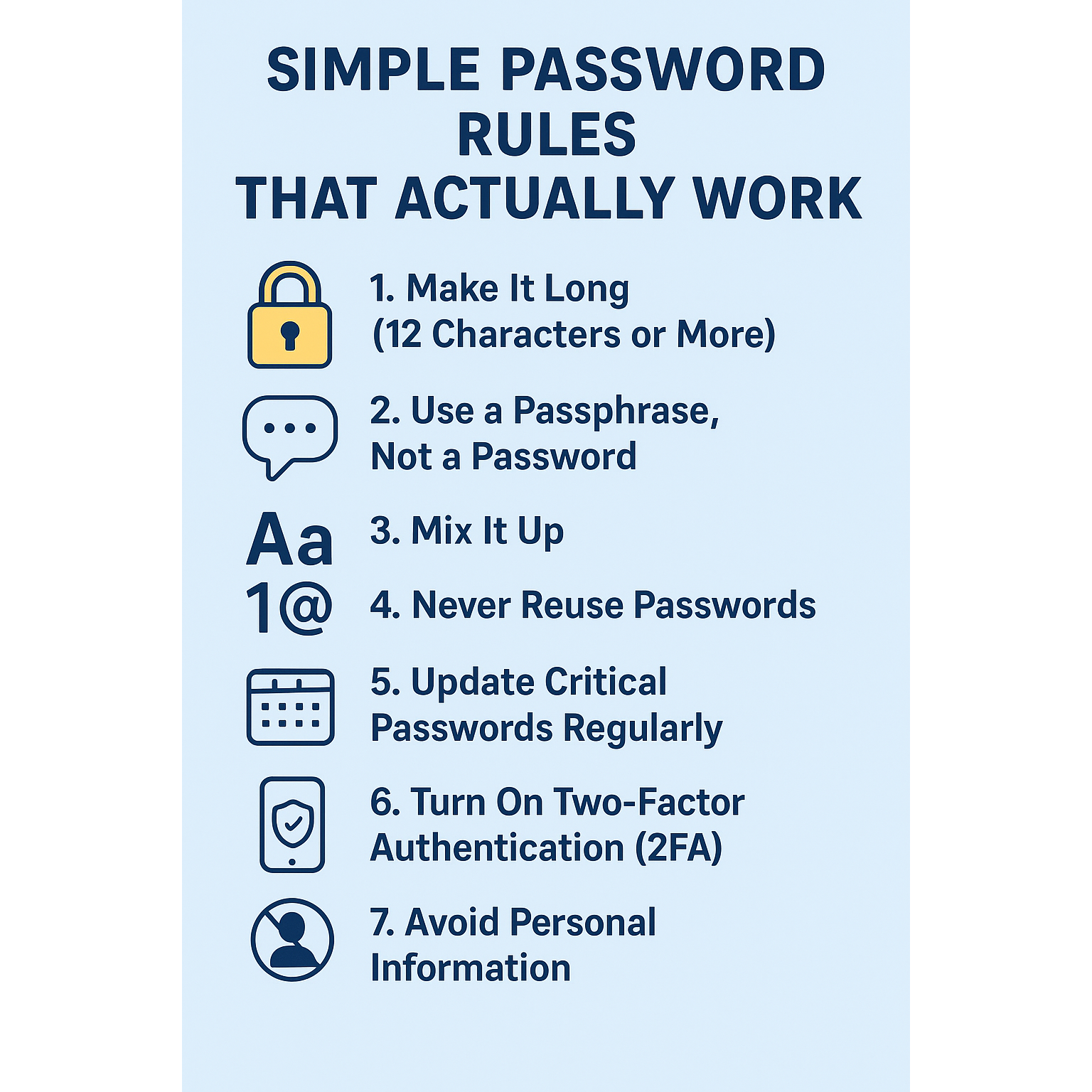This post is also available in: Bahasa Malaysia (Malay) Bahasa Indonesia (Indonesian)
Passwords are the keys to our digital lives—unlocking emails, bank accounts, business systems, and even personal memories stored in the cloud. Unfortunately, many people still use weak, easy-to-guess passwords, making it simple for hackers to get in.
The good news? Creating a strong password doesn’t have to be complicated or hard to remember. Here are simple password rules that actually work—no confusing tech jargon required.

1. Make It Long (12 Characters or More)
Short passwords are easier to crack with hacking tools. Even just a few extra characters can make a huge difference.
Example: Instead of D0g$123, use MyDogLovesChasingBalls2024.
2. Use a Passphrase, Not a Password
A passphrase is a short sentence or combination of random words. It’s easier to remember but much harder to guess.
Example: PurpleTacoRunsAtMidnight!
3. Mix It Up
Use a combination of:
- Uppercase letters (A–Z)
- Lowercase letters (a–z)
- Numbers (0–9)
- Symbols (!, @, #, ?)
Avoid obvious substitutions like P@ssw0rd — hackers know those tricks.
4. Never Reuse Passwords
If a hacker steals your password from one site, they’ll try it everywhere else. Use different passwords for different accounts.
A password manager like Kaspersky Password Manager can help you keep track without memorizing them all.
5. Update Critical Passwords Regularly
For your most important accounts—like email, banking, and business logins—change passwords every 6–12 months, or immediately if you suspect a breach.
6. Turn On Two-Factor Authentication (2FA)
Even the best password can be stolen. With 2FA, a hacker would still need a second code (often sent to your phone or authenticator app like Google Authenticator) to log in.
Think of it as adding a second lock to your front door.
7. Avoid Personal Information
No birthdays, pet names, or anything that can be found on social media. If it’s public, it’s not safe.
The Bottom Line
Strong passwords don’t have to be complicated or impossible to remember. By making them long, unique, and backed up with 2FA, you dramatically reduce the chances of hackers getting in.
Remember: The strongest password is the one only you know—but can still remember.
Did you find this article helpful? Please rate and also share your thoughts in the comments section below.
